Living intentional: how to start a slow living lifestyle
By Julian Lewis • January 3, 2023
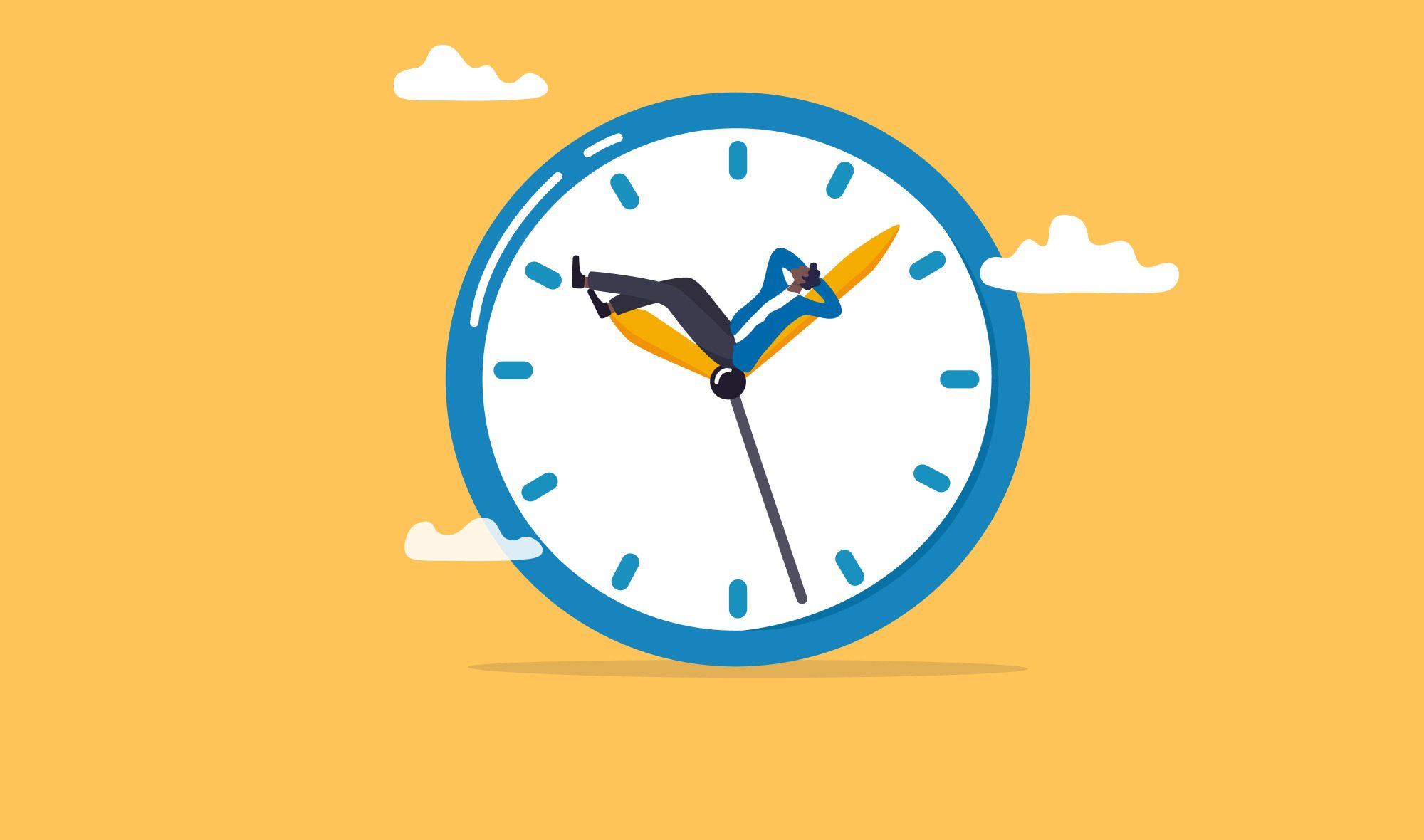
If you're feeling overwhelmed and burnt out by the fast-paced world we live in, you're not alone. Many of us are struggling to keep up with the demands of modern life and are seeking ways to slow down and find balance. That's where the concept of slow living comes in.
Slow living is about living a more intentional, mindful, and purposeful life by prioritizing what truly matters and letting go of the rest. It's about creating space for the things that bring joy, fulfillment, and connection, and letting go of the constant striving and stress that often accompany our fast-paced lives.
In this blog post, we'll explore the benefits of slow living and offer practical tips on how you can start incorporating this lifestyle into your own life. So, if you're ready to start finally feeling successful and living with more intention and purpose, keep reading!
Join our Newsletter
Transform your career with our personal growth insights. Get one valuable tip right in your inbox every Saturday morning.
Life on autopilot
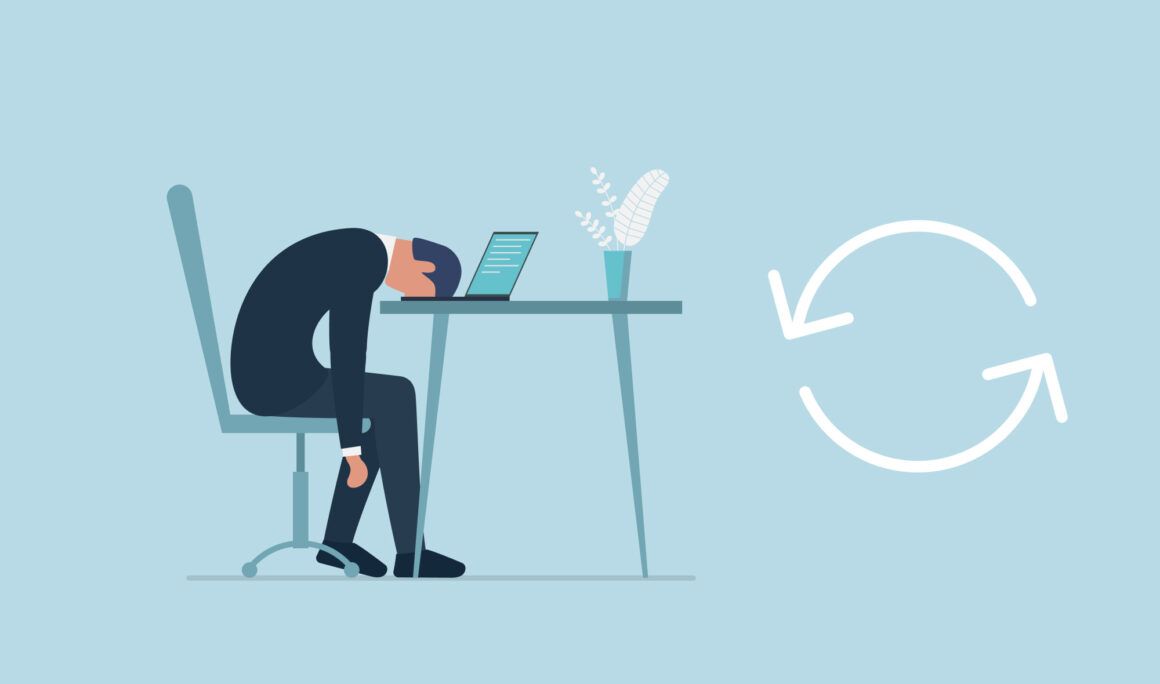
Life on autopilot refers to a state in which an individual is going through the motions of daily life without fully engaging or being present in the moment. It can be characterized by a lack of intention or defined purpose, as well as a lack of motivation or desire to change one's circumstances. Some people may find themselves on autopilot as a result of feelings of boredom, frustration, or apathy, while others may simply be so busy and overwhelmed that they feel they have no choice but to go through the motions.
Whatever the reason, living on autopilot can be detrimental to one's mental and emotional well-being, as it can lead to a sense of disconnection and dissatisfaction with one's life. It is important to try to break out of this cycle and find ways to fully engage with and find meaning in one's daily experiences.
What does it mean to live your life with intention?

Living your life with intention means making conscious, deliberate choices about how you want to live your life and actively working towards achieving those goals. It involves reflecting on misplaced priorities and focusing on what is truly important to you, rather than simply going through the motions or following the path that society or others have laid out for you.
To live with intention, you must be aware of your values, beliefs, and goals, and make choices that are in alignment with them. It also involves being present in the moment and making the most of each day, rather than letting opportunities pass you by. Intentional living requires effort and discipline, but it can lead to a greater sense of fulfillment, purpose, and happiness. It can also help you to feel more in control of your life and more connected to your authentic self.
Overall, intentional living means living a more deliberate and purposeful life, creating each day a better version of yourself rather than just going through the motions or letting life happen to you.
What exactly is slow living?

Slow living is a lifestyle approach that prioritizes mindfulness, intention, and purpose over the fast-paced and consumer-driven values of modern society. It is about living a more sustainable, authentic, and fulfilling life by taking the time to appreciate and savor the moments, people, and things that bring joy and meaning to your life. By slowing down and simplifying your life by letting go of the constant striving and stress that often accompany our fast-paced world, you are able to make space for the things that truly matter.
This involves making conscious choices about how you spend your time and resources and focusing on what brings you joy, fulfillment, and connection. It is about finding balance and harmony in your life and being present and engaged in the world around you, rather than simply going through the motions or letting life happen to you.
The following tenants are what define the slow living lifestyle and help guide the journey towards a more mindful and meaningful way of intentional living:
Join our Newsletter
Transform your career with our personal growth insights. Get one valuable tip right in your inbox every Saturday morning.
Knowing that faster isn't always better
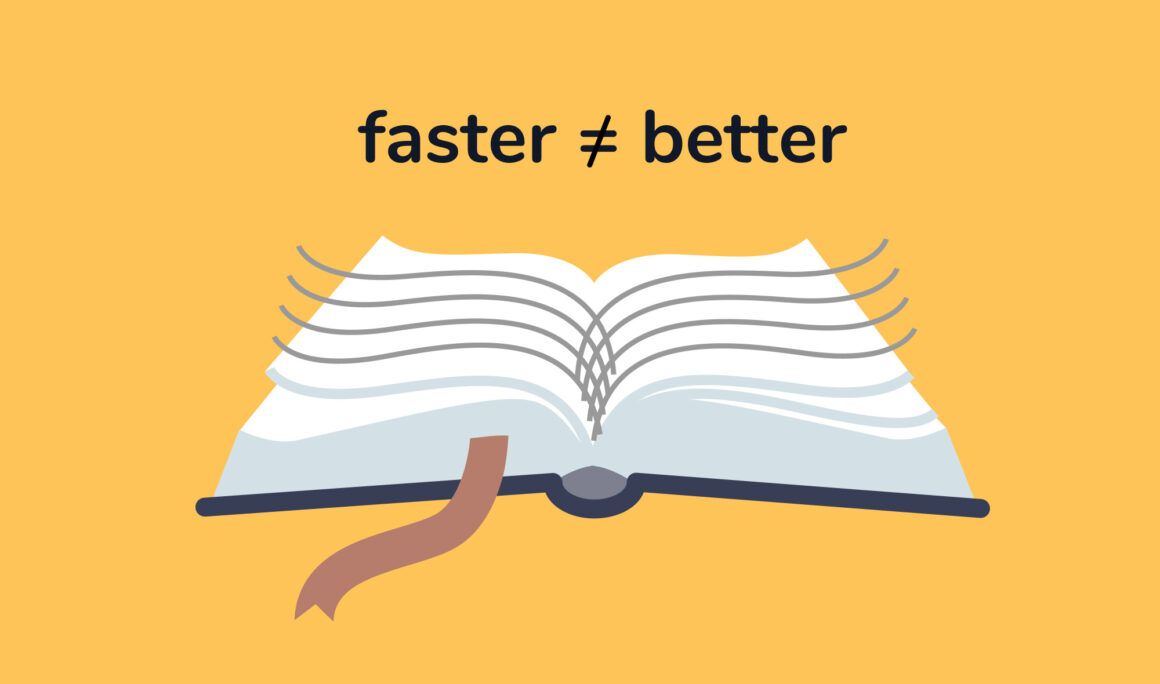
In our consumer-driven society, it is easy to fall into the belief that faster is always better and that we need to constantly strive for more in order to be successful and happy. We are told that we need to be productive and efficient at all times, and that we should be constantly striving for more, whether it be more money, more success, or more material things. This constant pressure to do more, be more, and have more can be exhausting and ultimately lead to feelings of burnout, stress, and dissatisfaction.
Slow living, on the other hand, recognizes that faster isn't always better and that sometimes, slowing down and simplifying can lead to greater fulfillment and happiness. It is about focusing on what truly matters to you and letting go of the things that do not bring value or joy to your life. Slow living is about making conscious, deliberate choices about how you spend your time and resources, rather than being driven by external pressures and expectations.
By embracing the principles of slow living, you can start to break free from the belief that faster is always better and learn to appreciate the present. Focus your time and energy on the people and things that bring joy and meaning to your life, rather than constantly striving for more.
A commitment to purpose

In John Maxwell's best seller, "Intentional Living", he discusses how to live with purpose and direction. His message is one based on experience rather than theory, as he has been involved in leadership training for over 35 years. Drawing from his experiences and knowledge, John Maxwell lays out a plan that will enable people to be the best they can be, whether it's at work or in their personal lives.
One of the key principles that Maxwell stresses throughout the book is the importance of having a clear purpose in life. He argues that having a clearly defined set of goals and priorities sets us on the right path and gives us direction to achieve what we want out of life. According to Maxwell, each individual has unique talents and abilities that can be channeled in the right direction with the right mindset.
For those who embrace slow and intentional living, it is a commitment to purpose in the sense that it requires a conscious choice to prioritize things that are meaningful and important, rather than being swept up in the constant stream of distractions and obligations that can often dominate our lives. This might involve making time for things like relationships, meaningful hobbies, personal growth, and other activities that bring a sense of fulfillment and purpose. You might want to check out dominance with a knowledge of purpose learn more about alpha males here.
A connection to the community
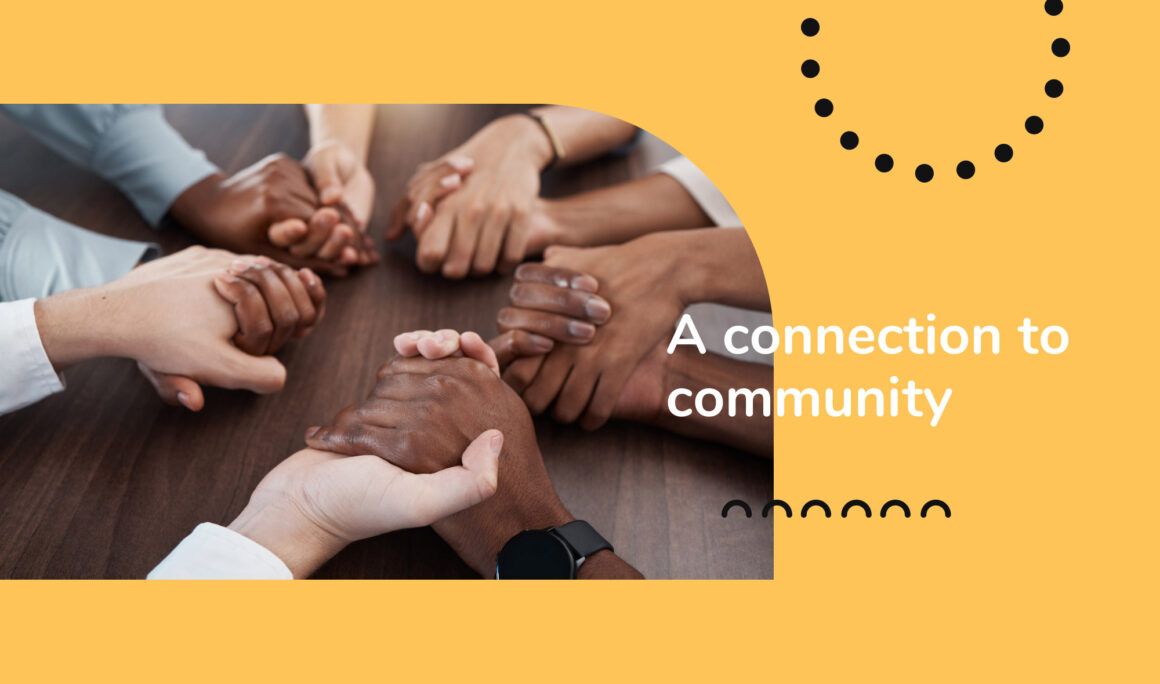
Slow living also involves a connection to the community, as it focuses on building and maintaining strong relationships with others. This might include spending more time with friends and family, volunteering in one's community, or participating in local events and activities.
For many people, building a sense of connection and belonging is an important aspect of living a fulfilling and meaningful life. Slow living can provide an opportunity to prioritize these connections and to invest in building and maintaining relationships with others.
In addition to personal relationships, slow living can also involve a sense of connection to one's broader community, such as the neighborhood or town in which one lives. This might involve becoming active in local organizations or causes, supporting local businesses, or participating in community events and activities.
The art of slow living
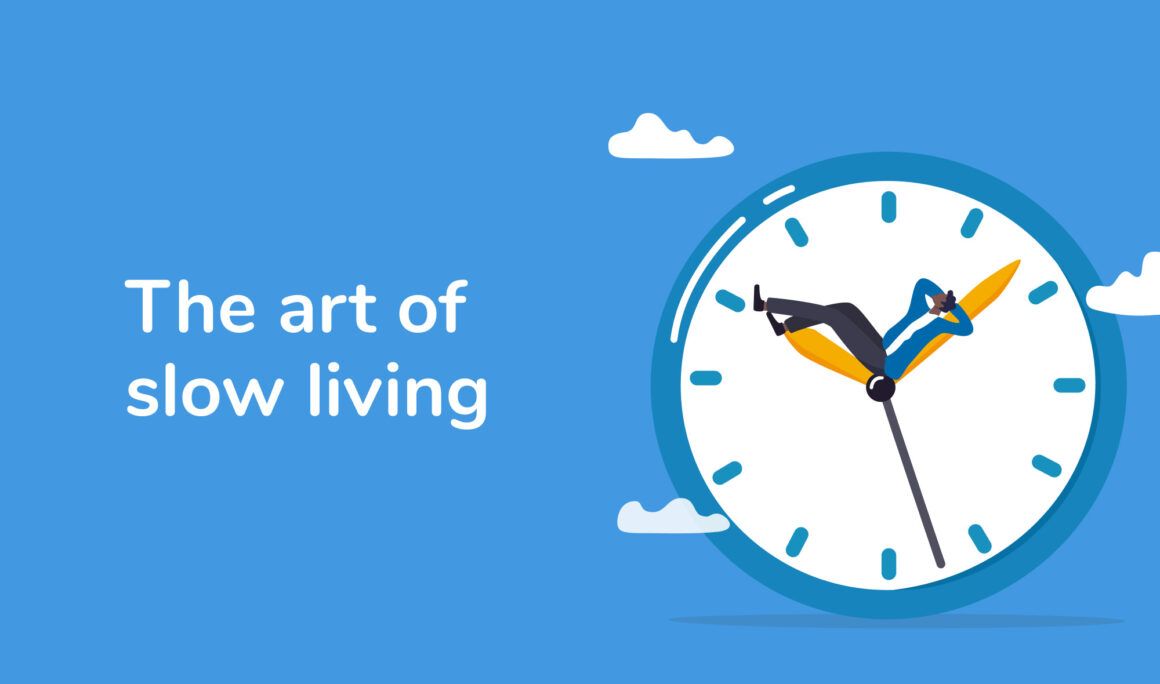
The art of slow living is a philosophy that emphasizes living in a way that is more reflective and connected to the present, rather than being constantly rushed and caught up in the frenetic pace of modern life. There are many different ways to practice the art of slow living, including simplifying one's life, minimizing distractions and unnecessary obligations, building and maintaining strong relationships with others, and finding ways to accept responsibility, reduce stress, and increase mindfulness every day. By embracing the principles of slow and intentional living, a busy person can create space for growth and develop a sense of balance, fulfillment, and purpose in their lives.
Let's dive into five easy ways that you can incorporate the core beliefs of slow living into your life:
Consuming less

Making more mindful choices about what and how much you consume is a fundamental aspect of practicing the art of slow living. One way to go about this is by gradually downsizing your possessions and removing things from your home or environment that you no longer use or need.
In addition, consider limiting screen time on your devices, such as television, social media, and video games, in order to create more space for other activities and relationships. This can immediately have a healthy impact on your well-being, as studies have shown that spending too much time online can increase feelings of stress and anxiety.
Be aware of how you spend your time

Another way to practice slow living is to be aware of how you spend your time. By paying attention to how you use your time, you can make conscious decisions about how you want to allocate it and your energy.
Being aware of how you spend your time can help you identify areas of your life where you may be overloading or over-committing yourself. It can also help you identify activities or tasks that may not be aligned with your values or priorities. By being more aware of how you spend your time, you can make choices that reflect your values and prioritize the things that are most important to you.
Another benefit of being aware of how your time is spent is that it can help you practice gratitude and appreciation for the present. When we are mindful of our time, we are more likely to be present in the moment and fully engage in the activities we are doing. This can lead to a greater sense of fulfillment and enjoyment in our daily lives.
Schedule in slow living

Scheduling can be an important tool for practicing slow living, as it helps us allocate our time and energy in a way that aligns with our values and priorities. Here are a few tips for incorporating slow and intentional living into your schedule:
Identify your values and priorities:
Before you start scheduling, take some time to think about what is most important to you. What are your values and priorities, and how do you want to allocate your time and energy to reflect those values?
Set aside time for rest and relaxation:
Slow living emphasizes the importance of rest and relaxation, so be sure to schedule time for rest and relaxation each day. This could include incorporating activities like meditation or yoga into your evening routine or simply taking a walk in nature.
Prioritize self-care:

Make time for self-care activities like exercising, getting enough sleep, and eating well. These practices can help you feel more grounded and energized, which can in turn help you be more productive and focused when you are working or engaging in other activities.
Take breaks and unplug:
Schedule regular breaks throughout your day to disconnect from technology and simply be present in the moment. This can help you feel more grounded and stay focused when you return to your tasks.
By following these tips and being mindful of how you allocate your time, you can incorporate slow living practices into your schedule and find greater fulfillment and enjoyment in your daily life.
Mindfulness and being aware of your surroundings

Mindfulness is the practice of bringing your attention to the present moment, without judgment. It involves paying attention to your thoughts, feelings, and sensations, as well as the world around you, in a non-reactive way. By cultivating mindfulness, you can learn to be more present and aware of your surroundings, rather than being lost in thought or caught up in distractions.
Being aware of your surroundings involves paying attention to the sights, sounds, and other sensory experiences around you. It means noticing the beauty of nature, the details of your environment, and the people you interact with. It also involves being present in your interactions with others, rather than being preoccupied with your own thoughts or distractions.

Practicing mindfulness and self-awareness can help you live a slower, more intentional life. It can help you tune out distractions and focus on what truly matters, whether that's spending time with loved ones, enjoying the simple pleasures of life, or engaging in meaningful work or hobbies. It can also help you appreciate the beauty and simplicity of life, and find contentment and fulfillment in the moment.
Keep your expectations low

It's important to keep expectations low when it comes to living with intention because it can help set you up for success and reduce disappointment.
Slow living is about simplifying and focusing on what truly matters in life, rather than striving for perfection or trying to do everything at once. By keeping expectations low, you can give yourself permission to take things one step at a time and not get overwhelmed by unrealistic goals.
Additionally, keeping expectations low can help you be more flexible and adaptable, which can be important when practicing slow living. Life is full of surprises and unexpected events, and having low expectations can help you be more resilient and better able to roll with the punches.
A slow approach to everyday life
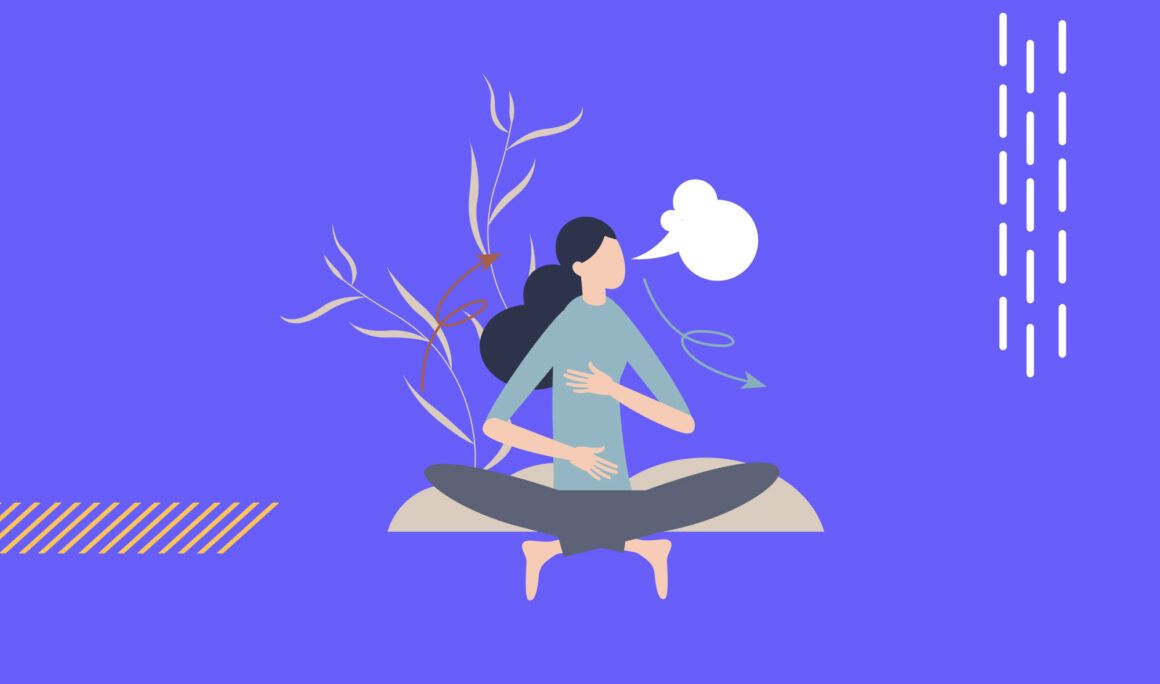
It can be so easy to get caught up in the hustle and bustle of day-to-day life. However, a slow approach to everyday life can be a refreshing and fulfilling way to live.
By adopting a slower pace and living intentionally, you can find more freedom, joy, and contentment in the present moment, and be more mindful and present in your interactions with others. Whether it's taking time to savor a cup of coffee, enjoying a leisurely walk in nature, or spending precious time with loved ones, a slow approach to everyday life can help you find a sense of balance and purpose in life.
If you're looking for ways to practice slow and simple living every day, here are some practical examples, healthy habits, and slow-living resources to get you started:
Slow living at work

By adopting a slower pace and being more mindful at work, you can find more balance and fulfillment in your professional life.
Take breaks:

It's important to take breaks throughout the day to recharge and refocus. Instead of scrolling through social media or checking emails during your breaks, create time to disconnect and be present in the moment. This could mean taking a walk outside, stretching, or simply closing your eyes and taking a few deep breaths.
Set boundaries:
Set boundaries around your work hours and stick to them. This can help you avoid burning out and ensure that you spend time on other important aspects of your life, such as family, friends, and hobbies.
Simplify your workspace:
A cluttered workspace can be overwhelming and the greatest distraction from productivity. Consider decluttering and simplifying your work environment to create a more peaceful and focused atmosphere.
Prioritize your tasks:
Slow living means focusing on what truly matters. Take some time to reflect on your priorities and focus on the most important tasks first. This can help you avoid getting caught up in the busyness of everyday life and stay more focused on what really matters.
Slow living hobbies
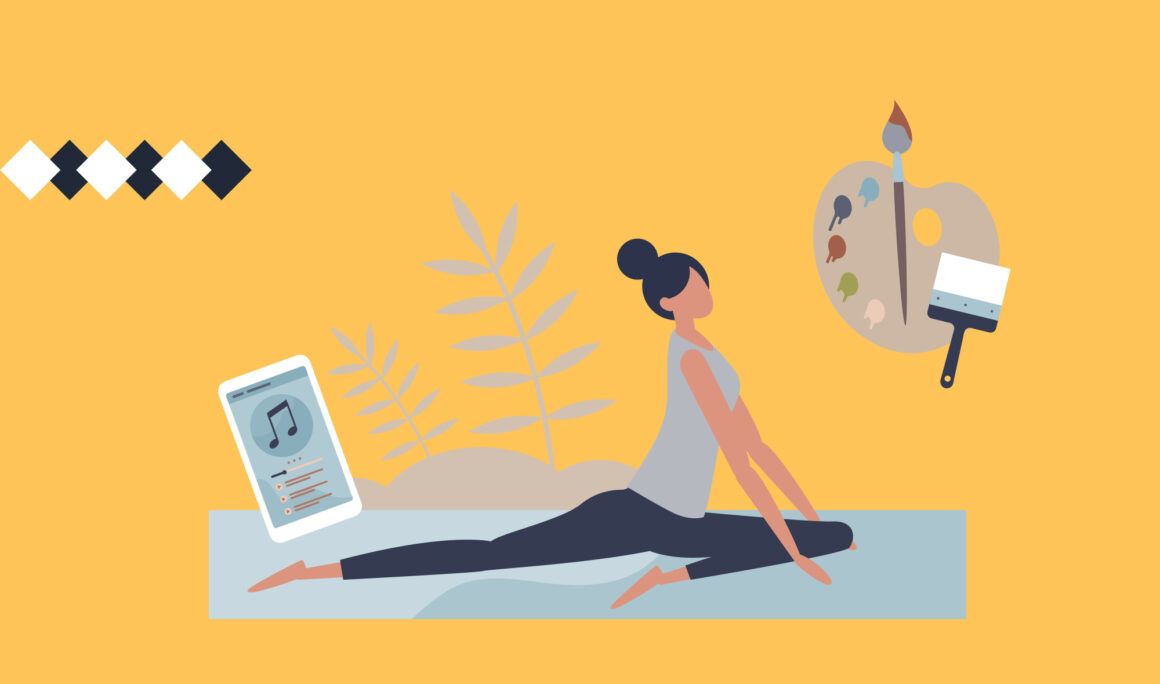
To find more balance and fulfillment in your leisure time, it makes sense to choose hobbies that are meaningful and fulfilling to you, rather than ones that are just a way to pass the time. Consider what values and interests are important to you, and look for hobbies that align with these.
Rather than rushing through your hobbies, you should also try to take your time and savor the experience. This can be especially important for hobbies that involve creating or making something, as the process can be just as enjoyable as the final product.
Letting hobbies fall by the wayside when we're busy with other responsibilities can be easy to do. To practice slow living through your hobbies, set aside dedicated time for them each week or month. This can help you make the most of your hobbies and fully engage in the activity.
Last but certainly not least, slow-living hobbies help us find joy in the process. Rather than focusing on the end result, try to find joy in the process of pursuing your hobbies. This can help you stay more present and engaged in the activity, rather than getting caught up in the stress of trying to achieve a particular outcome.
Slow living magazines
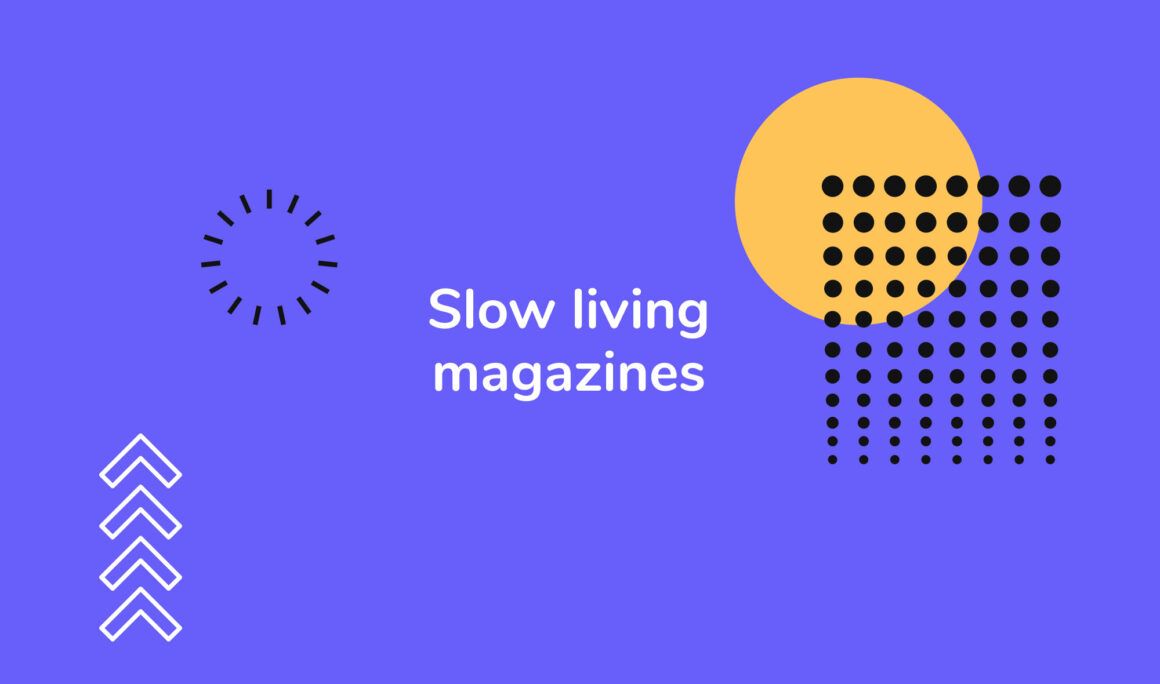
Slow-living magazines can be a great resource for those looking to incorporate more slow-living practices into their free time. They can provide inspiration and practical tips for living a slower, more intentional life. Some common topics that might be covered in slow-living magazines include:
- Minimalism and decluttering
- Sustainable living and environmentalism
- Mindfulness and meditation
- Creative hobbies and DIY projects
- Mental and physical health and wellness
- Personal growth and self-improvement
- Travel and adventure
- Recipes and cooking
Slow living blogs
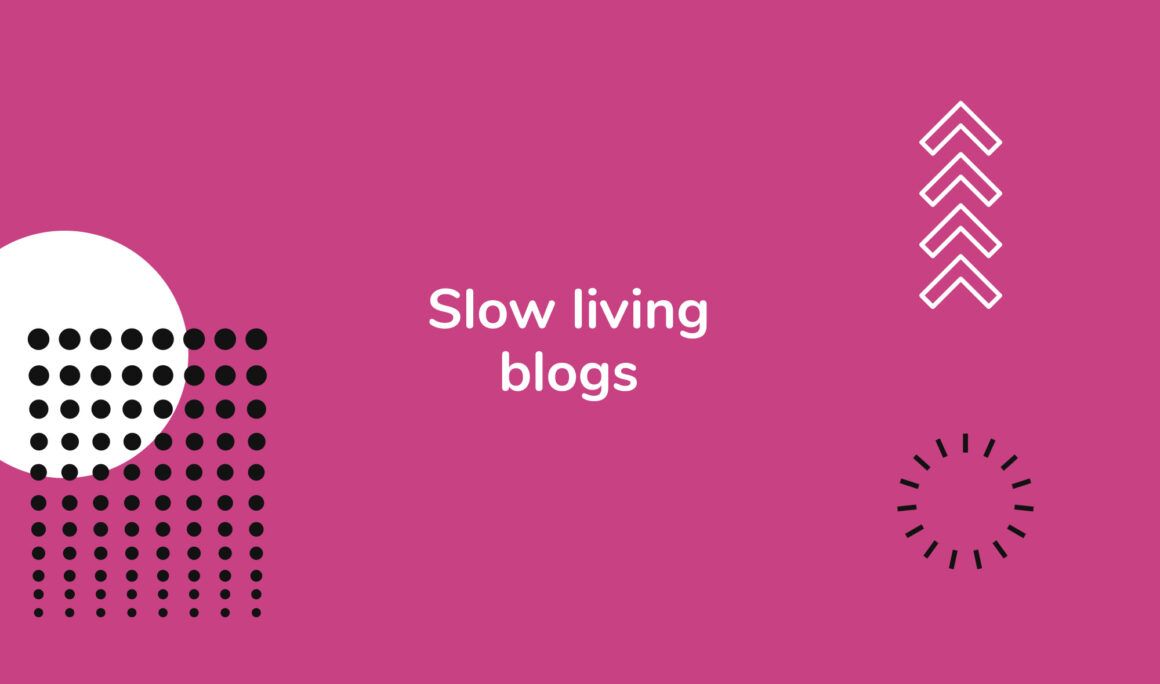
Slow-living blogs are another great way to learn more about the slow-living movement and find ideas and inspiration for how to live intentionally. They can also be a great source of community and connection, as they often feature stories and articles written by people who are also interested in slow living.
There are many popular blogs that focus on the slow movement and lifestyle. Here are a few examples:
Becoming Minimalist:
Written by Joshua Becker, Becoming Minimalist is all about simplifying, decluttering, and finding meaning in life. It features articles on minimalism, family, personal growth, and more. It is a great resource to help people get rid of the excess in their lives.
Slow Your Home:
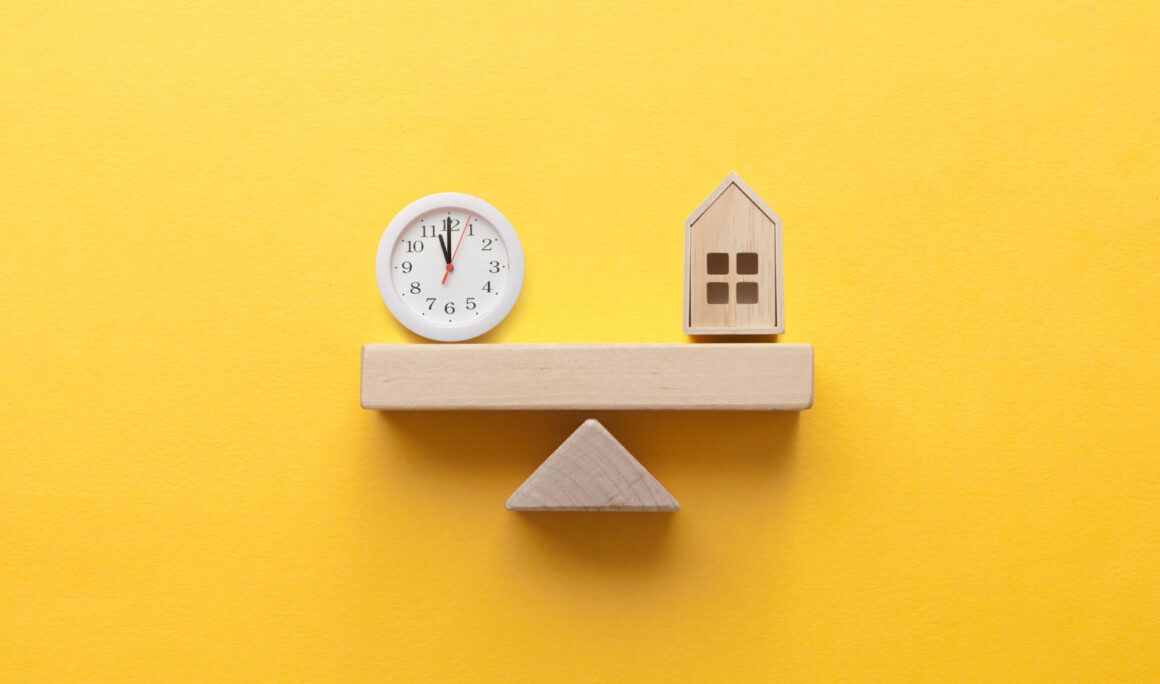
This blog, written by Brooke McAlary, is focused on helping people declutter and simplify their homes. It features articles on slow living tips such as minimalism, organization, and living a more intentional life. Whether you are dealing with clutter, stress, or a busy schedule, Slow Your Home has plenty of tips and advice to help you on your journey toward a more minimalistic lifestyle.
The Art of Simple:
Tsh Oxenreider is all about simplifying, slowing down, and finding joy in the simple things in life. With a focus on minimalism, travel, and parenting, The Art of Simple is a great resource for anyone on the journey toward a happier, simple life.
Uncluttered Simplicity:
This blog provides advice on a range of topics including decluttering, simplifying, and finding joy in the present moment. Melissa Camara Wilkins shares her thoughts on living a more mindful, intentional life and encourages others to do the same. Whether you are just starting out on your minimalistic journey or have been living intentionally and simply for years, Uncluttered Simplicity has plenty of helpful tips and advice to help you along the way.
These are just a few examples of popular slow-living blogs. There are many others out there, each with its own unique perspective and focus. For those looking to incorporate more slow living practices into their lives, blogs can offer a wealth of information, inspiration, and guidance. So why not start exploring today?
The slow travel movement

Slow travel often involves staying in one place for a longer period of time, rather than moving around frequently. This can allow you to really get to know a place, rather than just scratching the surface. It can also involve staying in locally-owned accommodations, such as bed and breakfasts or vacation rentals, rather than big chain hotels. This can help you support local businesses and get a more authentic sense of the place you're visiting.
Slow travel can also involve exploring a destination on foot, by bike, or by public transportation, rather than relying on a car or other private transportation. This can help you get a more immersive and authentic experience of a place, as well as reduce your carbon footprint.
The slow reading movement
The slow reading movement is all about taking a more intentional and mindful approach to reading. It emphasizes savoring the experience of reading, rather than rushing through a book or multitasking while reading.
Slow reading involves setting aside dedicated time to read, and giving your full attention to the book. This can involve setting aside distractions, such as phones or other screens, and finding a quiet and comfortable place to read. It can also involve taking breaks to reflect on what you've read, rather than trying to power through a book as quickly as possible.
Another aspect of slow reading is reading deeper, rather than just skimming the surface of a book. This can involve taking notes, asking questions, and engaging in critical thinking and analysis as you read. It can also involve rereading passages or entire books to really absorb and understand the content.
How does this improve our relationships?

A slow lifestyle can improve familial, platonic, and romantic relationships in a number of ways:
Increased quality time:
By adopting a slower pace and simplifying your life, you can make more time for the people you care about. This can involve setting aside dedicated time for family dinners, weekend getaways, or game nights with friends. By focusing on quality rather than quantity, you can strengthen your relationships and foster a sense of connection and belonging.
Improved communication:

A minimalist lifestyle can also encourage more mindful and present communication with others. By being more present in your interactions with others, you can listen more attentively and be more attuned to their needs and feelings. This can help you foster stronger and more meaningful relationships.
Reduced stress and anxiety:
A slow lifestyle can help you reduce stress and anxiety, which can improve your relationships with others. When you're feeling overwhelmed and stressed, it can be harder to be present and fully engaged with others. By adopting a slower pace and simplifying your whole life, you can reduce stress and be more present and available to the people you care about.
Greater appreciation:
A slow lifestyle can also help you appreciate the simple pleasures of life and the people you care about. By taking the time to slow down and savor your experiences, you can find more joy and fulfillment in your relationships.
Overall, a slow lifestyle can improve your relationships by fostering more meaningful and intentional connections with others.
You don't have to have everything figured out

Slow living encourages us to focus on what truly matters and to appreciate the present moment rather than constantly striving for more. Achieving this might seem daunting, but the good news is that you don't have to have everything figured out all the time. In fact, it's okay to be unsure and to take your time to figure out what you really want. It's about being present and embracing the uncertainty of life, rather than trying to control everything and always be on the go.
So if you're feeling overwhelmed and like you have to have everything figured out, try embracing the philosophy of slow living and give yourself permission to take things at your own pace.
How to identify values and beliefs?

Identifying your values and beliefs is an important step in understanding yourself and making decisions that align with your priorities. It is important to reflect on your past experiences, as well as look towards the future, to help you determine what values and beliefs are most important to you.
There are a number of different ways that you can identify your values and beliefs in preparation for a slower life. Here are a few common exercises:
Use meditation to discover your true self
Many people find that quieting the mind and reflecting on one's innermost thoughts can help identify core values and beliefs. One effective meditation technique is to focus on your breathing, bringing attention to each inhalation and exhalation as it occurs. As you breathe, reflect on what is most important to you in life, what brings you joy or happiness, and what you want to pursue or accomplish.
Conduct a self-examination
Another way to identify your values and beliefs is by reflecting on your past experiences and accomplishments. Consider what decisions, tough choices or actions were most important to you at different points in your life. This can help you realize what patterns or common themes may indicate which core values are important to you.
Think about who you admire and why
Another exercise to consider is thinking about the people in your life who you admire or respect. This could include role models, mentors, family members, or a best friend. Consider what qualities and characteristics these people possess that make them so admirable, and what it is about their values and beliefs that resonates with you.
Ultimately, identifying your core values and beliefs is a personal process that may take time and require reflection. Remember to be patient with yourself as you work through this process, and don't be afraid to seek out support from friends or family members if needed. By taking the time to better understand what is most important in your busy life, you can begin making intentional choices that align with your values and beliefs and enjoy a more fulfilling and meaningful lifestyle.
Conclusion

Intentionally living a slow lifestyle can be a rewarding experience that helps you to focus on what is truly important in life. It can be a challenge to shift your mindset and make changes in the way you live, but by taking the time to reflect on your values and beliefs, you can begin to make small changes that lead to a more fulfilling and meaningful life at the right speed.
If you are feeling overwhelmed or lost when it comes to making these changes, don't hesitate to seek out support from friends or family members. There are many resources available to help you get started on this journey, including books, articles, websites, and even online courses. For more information and answers to frequently asked questions about life and career coaching, you can visit Zella Life's blog post on the topic and leadership coaching quotes for more inspiration.
The most important thing is to be patient with yourself as you introduce intentionality and transition into a slower lifestyle. It will take time, effort, and self-compassion to change the way you think about and pursue happiness, but the final destination is worth it!
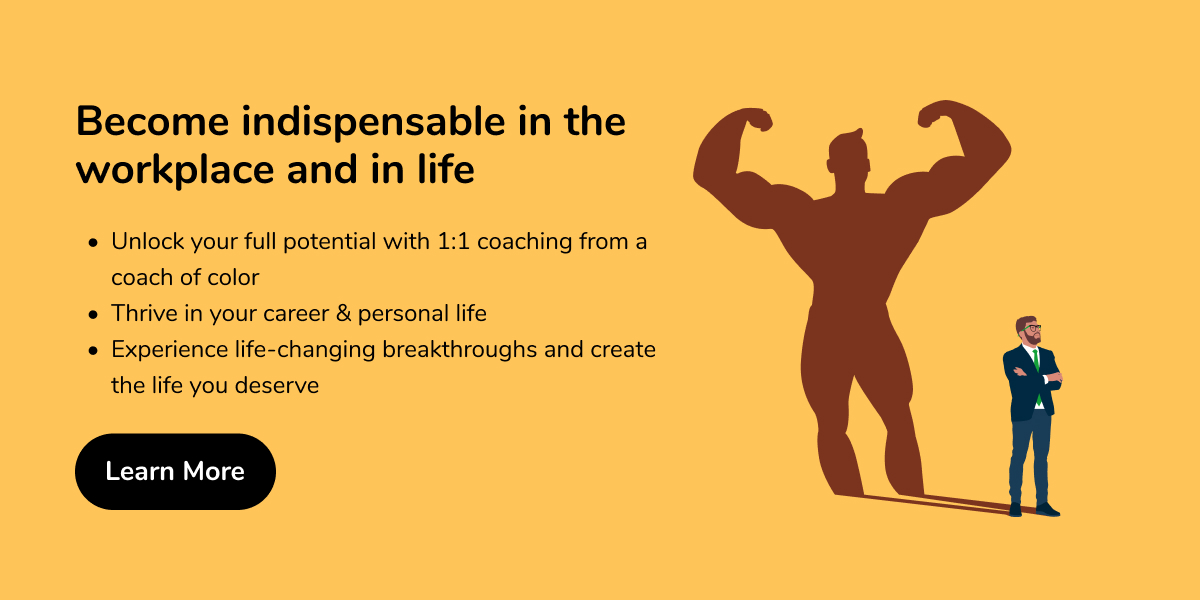
Read more about: Life Coaching, Existential Crisis
About Julian Lewis
Julian Lewis is a driven and accomplished professional with a passion for driving positive change in the business world. He is the co-founder and COO at Zella Life.
His own experience as a professional of color in a Fortune 500 company led him to discover the limitations for advancement that many professionals like himself face. Determined to reach his full potential, Julian became an established business coach and entrepreneur, committed to supporting others in their pursuit of personal and professional growth.
Today, Julian is a recognized corporate trainer, coach, and leader, known for his ability to leverage real-life experiences and evidence-based methodologies to affect positive change within individuals and organizations. As the leader of Zella Life's coaching division, he is dedicated to empowering individuals and businesses to achieve their full potential.